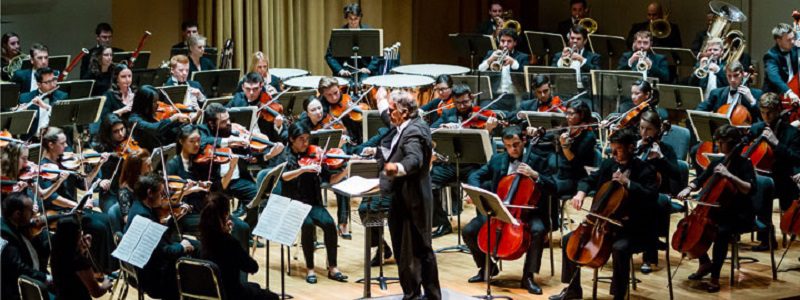
Music and Argument: Helping Students See the Underlying Unity of Academic Work, Even in Music
God has given us music so that above all it can lead us upwards. Music unites all qualities: it can exalt us, divert us, cheer us up, or break the hardest of hearts with the softest of its melancholy tones. But its principal task is to lead our thoughts to higher things, to elevate, even to make us tremble . . . . The musical art often speaks in sounds more penetrating than the words of poetry, and takes hold of the most hidden crevices of the heart . . . . Song elevates our being and leads us to the good and the true.
— Friedrich Nietzsche (1888)
Nietzsche may have been right about the transcendent power of music, and a lot of us think he was. And when students learn begin to learn to play an instrument in school they are introduced to their own production of this emotional power, which is an extremely worthwhile educational function. Much of what takes place, though, in music classrooms — in K-12 and in higher education — is the academic study of music (music appreciation, music theory) that is in a register fundamentally similar to all other academic subject areas. And for this reason, students are required to produce, respond to, and evaluate strong arguments about questions and issues in the field of music.
We have worked with partner schools’ music departments to use a routine we call extended argumentative response in their classrooms. We start — as argument-centered instruction always does — by identifying a debatable issue. We then assign a reading or readings, engage in classroom discussion, and then have students build arguments in extended response to questions related to the issue and the readings. Those arguments are scaffolded so that they contain some provided and some missing elements of an argument.
In one example of the extended argumentative response routine in music we formulated this issue:
Does music education improve overall academic achievement?
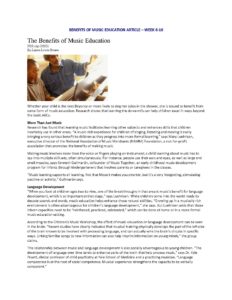
The extended argumentative response activity helps students make and evaluate strong arguments about this issue, based on the reading.
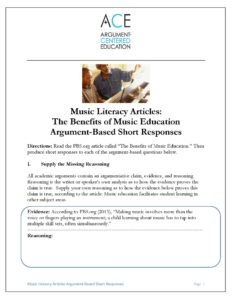
Why are there so many violins in symphonic orchestras?
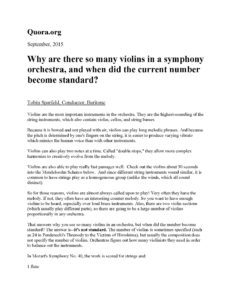
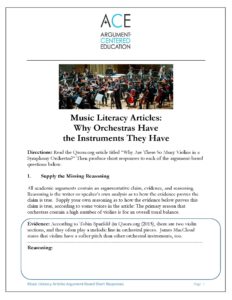
Another debatable issue is:
Should musical theater roles be cast without regard to the race of the characters?
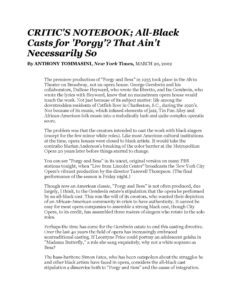
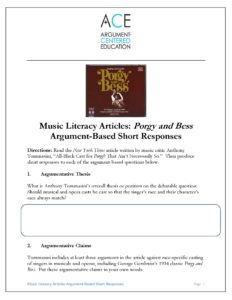
This activity is a smaller-scale but academically rigorous application of argument. It doesn’t have to take more than a class period but, especially when used as a routine in class over time, it can effectively deepen students’ critical thinking and argumentation skills, complementing the Nietzschean transcendence that students’ learning to play sweet music can have.

